Hoffmann bromamide reaction involves conversion of a carboxylic acid amide into an amine with a loss of a carbon atom on treatment with aqueous sodium hypobromite. Thus Hoffmann result in shortening of a carbon chain.
R=O∣∣C−NH2Br2−−−→NaOHR−NH2+NaBr+Na2CO3
Mechanism of the reaction is :
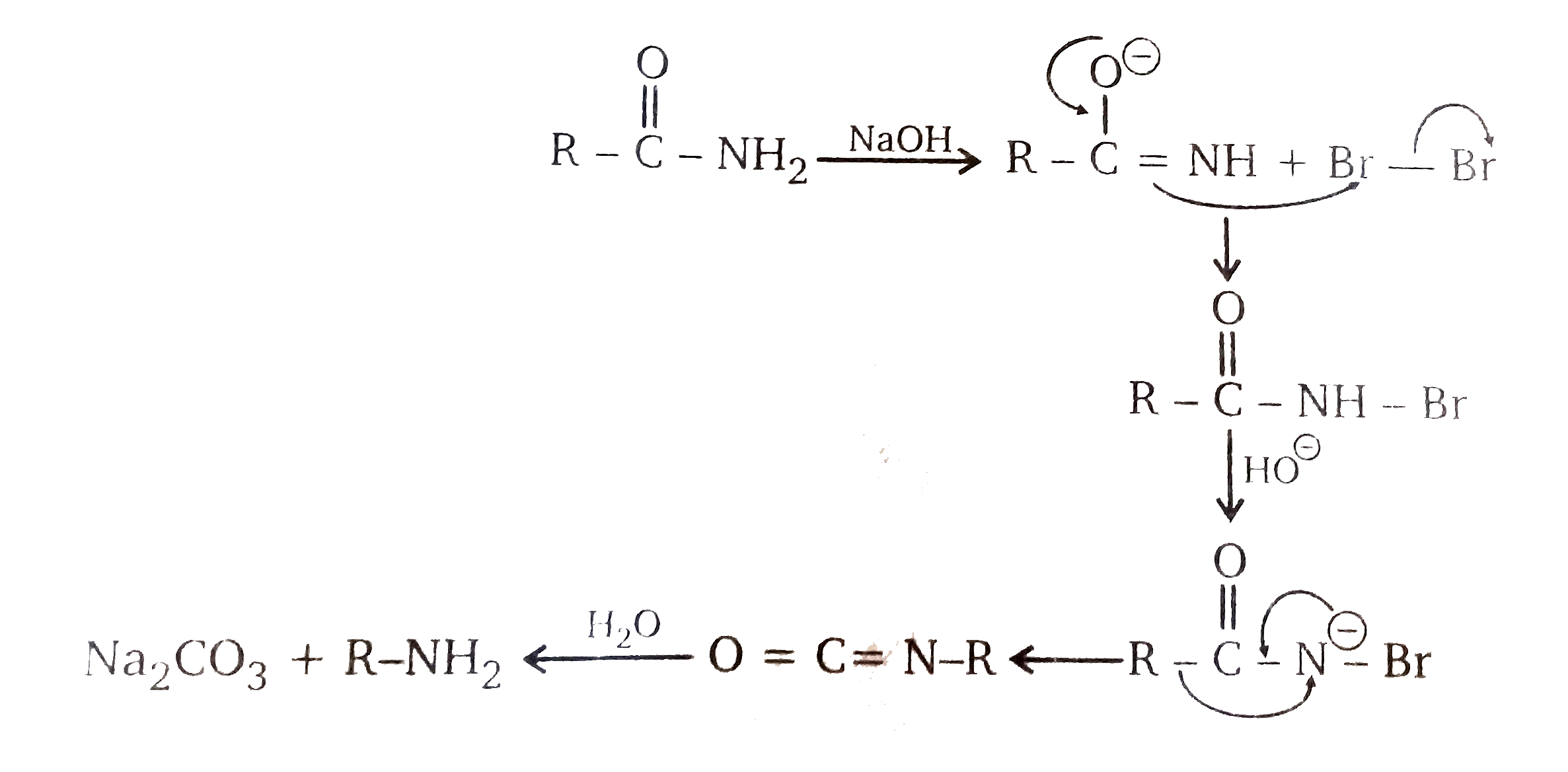
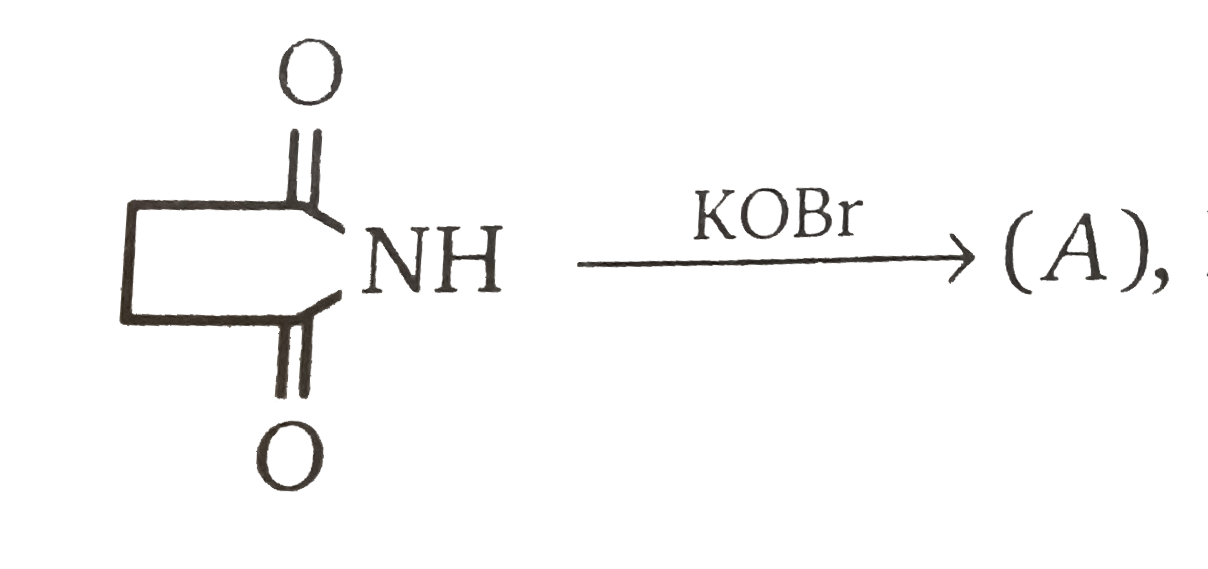
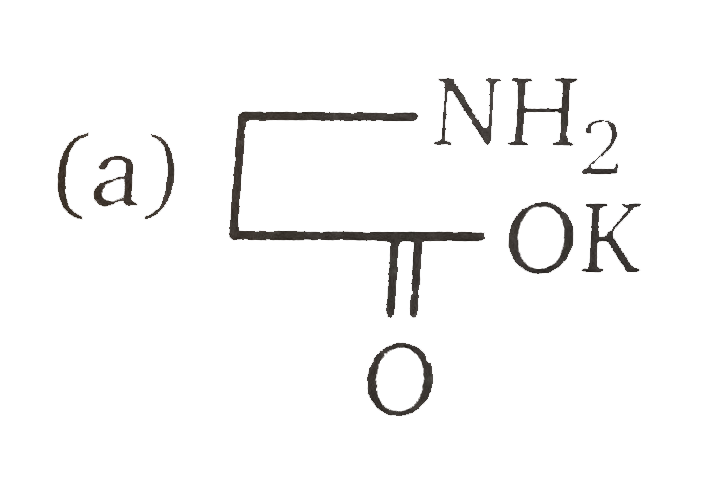
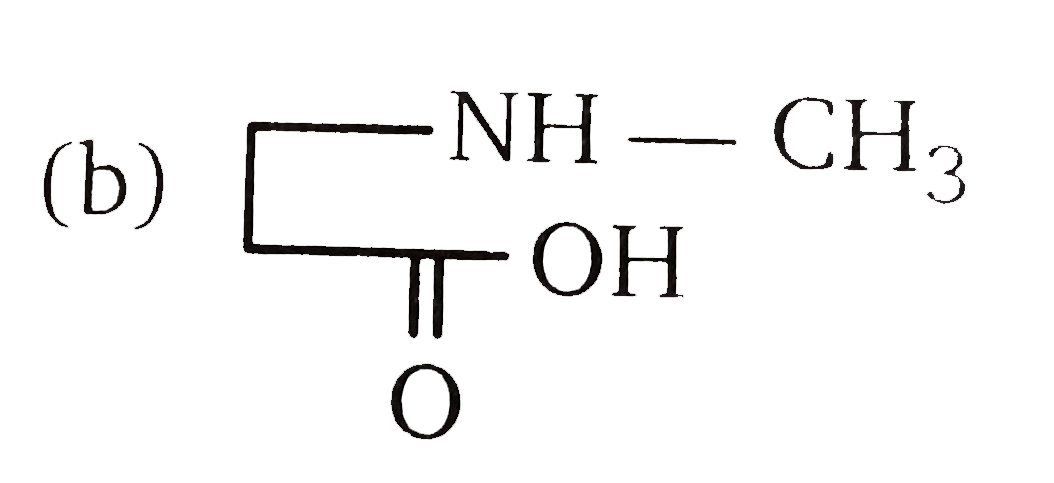
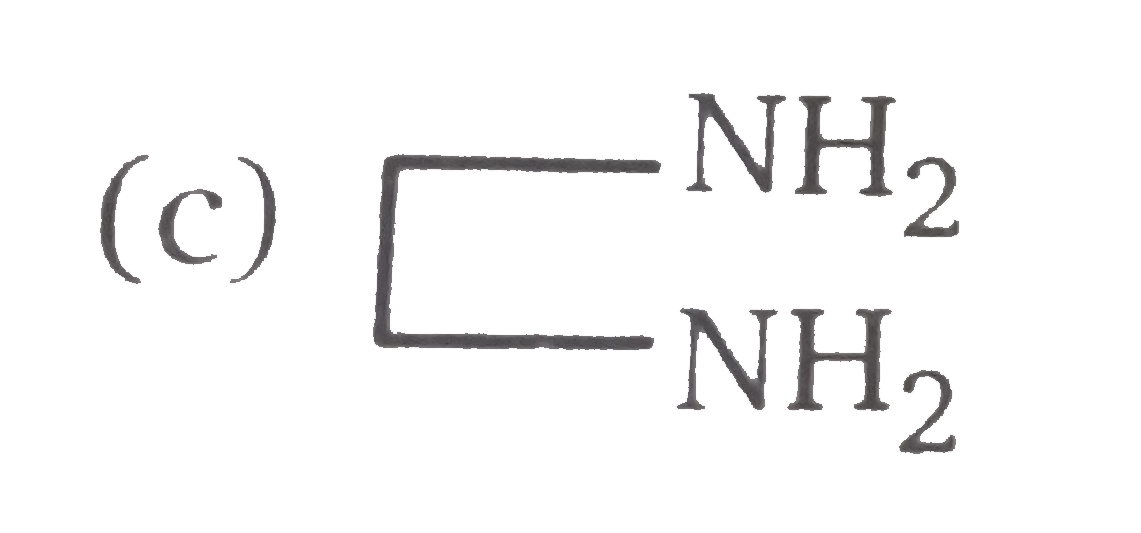
None of these
The correct Answer is:A
Topper's Solved these Questions
- CARBENE AND NITRENEBOOK - MS CHOUHANCHAPTER - CARBENE AND NITRENEEXERCISE - Level 1 (Q.31 To Q.41)
11 Videos
- CARBENE AND CARBENOIDSBOOK - MS CHOUHANCHAPTER - CARBENE AND CARBENOIDSEXERCISE - ADDITIONAL OBJECTIVE QUESTIONS (Single Correct Choice Type)
26 Videos
- CARBOHYDRATES BOOK - MS CHOUHANCHAPTER - CARBOHYDRATES EXERCISE - MULTIPLE CORRECT CHOICE TYPE (INTEGER TYPE)
1 Videos
Similar Questions
It involves conversion of a carboxylic acid amide into an amine with a loss of a carbon atom on treatment with aqueous sodium hypobromite. THus Hoffmann result in shortening of a carbon chain.
R−O||C−NH2Br2−−−−−→NaOHR−NH2+NaBr+Na2CO3
Mechanism of the reaction is
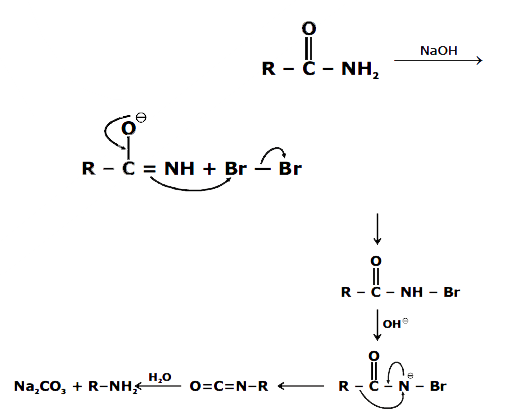
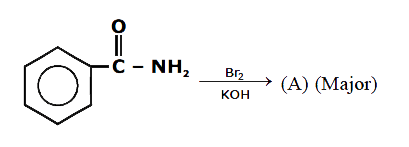
(Major) Product (A)
View SolutionIt involves conversion of a carboxylic acid amide into an amine with a loss of a carbon atom on treatment with aqueous sodium hypobromite. THus Hoffmann result in shortening of a carbon chain.
R−O||C−NH2Br2−−−−−→NaOHR−NH2+NaBr+Na2CO3
Mechanism of the reaction is
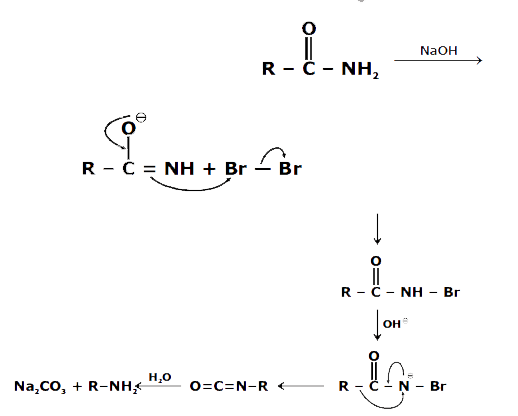
Which of the following will not give Hoffmann bromamide rection ?
View Solution
Knowledge Check
Hoffmann bromamide reaction involves conversion of a carboxylic acid amide into an amine with a loss of a carbon atom on treatment with aqueous sodium hypobromite. Thus Hoffmann result in shortening of a carbon chain.
R−O∣∣C−NH2Br2−−−→NaOHR−NH2+NaBr+Na2CO3
Mechanism of the reaction is :
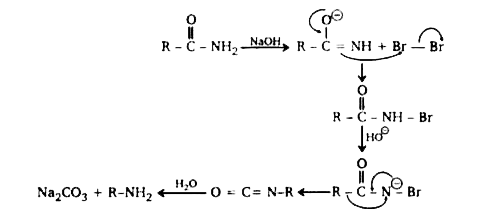
Which of the following will not give Hoffmann bromamide reaction.ACH3−O∣∣C−NH2B C
C D
D
Hoffmann bromamide reaction involves conversion of a carboxylic acid amide into an amine with a loss of a carbon atom on treatment with aqueous sodium hypobromite. Thus Hoffmann result in shortening of a carbon chain.
R−O∣∣C−NH2Br2−−−→NaOHR−NH2+NaBr+Na2CO3
Mechanism of the reaction is :
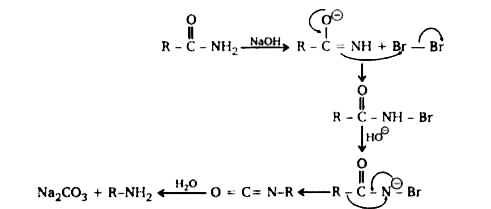
Number of moles of NaOH consumed in above reaction.A1B2C3D4Hoffmann bromamide reaction involves conversion of a carboxylic acid amide into an amine with a loss of a carbon atom on treatment with aqueous sodium hypobromite. Thus Hoffmann result in shortening of a carbon chain.
R−O∣∣C−NH2Br2−−−→NaOHR−NH2+NaBr+Na2CO3
Mechanism of the reaction is :
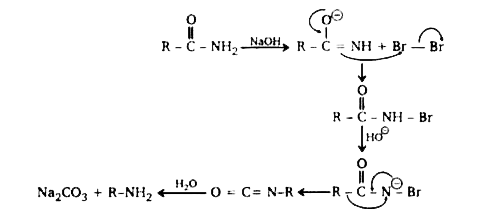
 Product (A) : APh−NH2BPh−CH2−NH2CPh−NH−CH3D
Product (A) : APh−NH2BPh−CH2−NH2CPh−NH−CH3D
Hoffmann bromamide reaction involves conversion of a carboxylic acid amide into an amine with a loss of a carbon atom on treatment with aqueous sodium hypobromite. Thus Hoffmann result in shortening of a carbon chain.
R−O∣∣C−NH2Br2−−−→NaOHR−NH2+NaBr+Na2CO3
Mechanism of the reaction is :
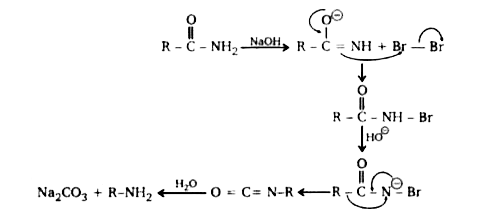
 Product (A) is :
Product (A) is :
View SolutionThe conversion of an amide by action of NaOH and Br2 to primary amine that has one carbon
less than the starting amide is known as Hofmann-Bromamide reaction.
R−O∣∣C−NH2Br2+NaOH−−−−−−−→orNaOBrR−NH2+NaBr+Na2Co3
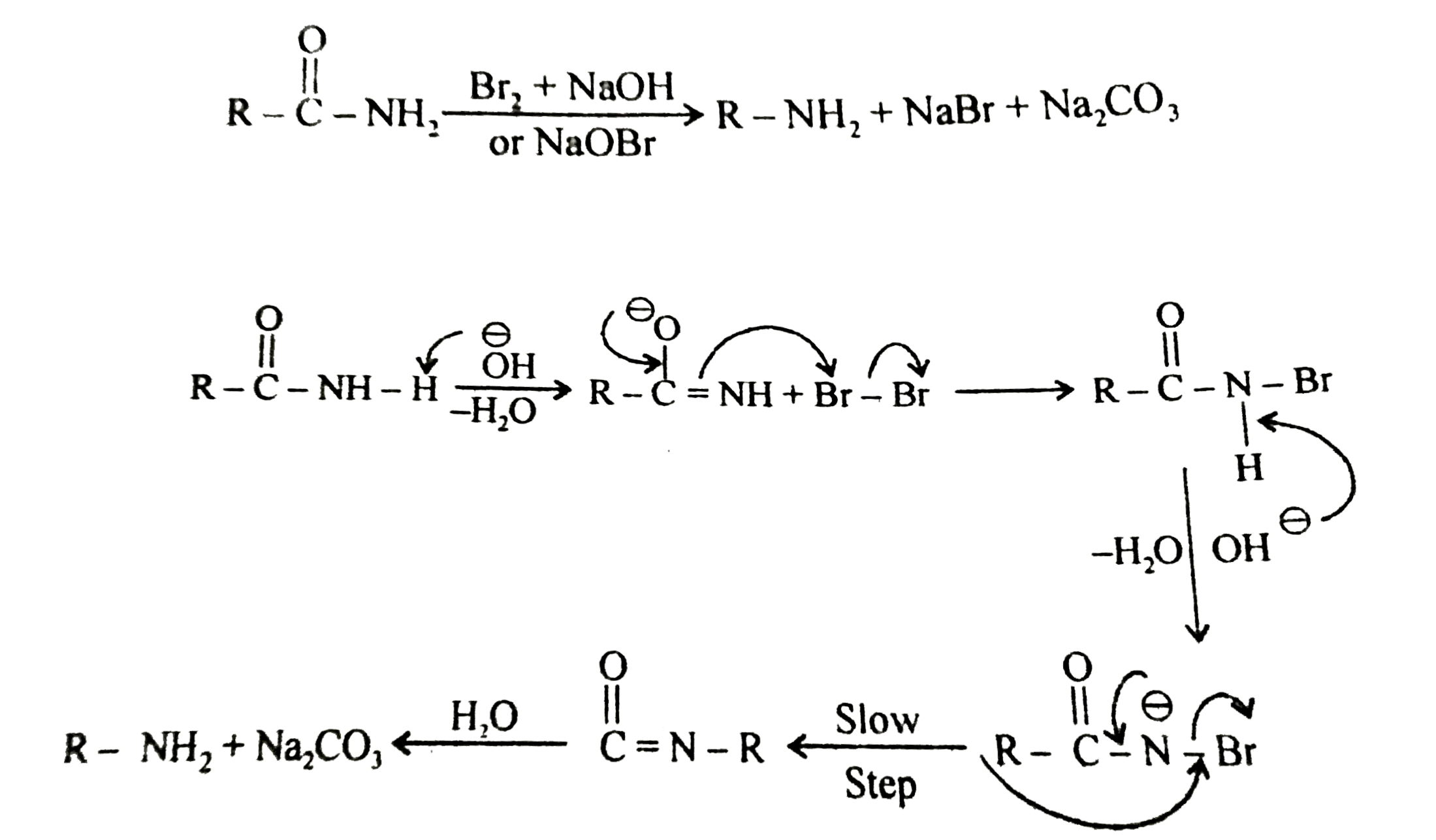
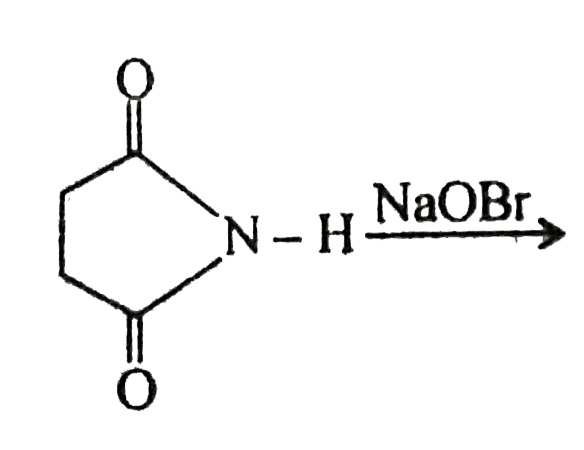 , Find out X :
, Find out X :
View SolutionThe conversion of an amide by action of NaOH andBr2 to primary amine that has one carbon less than
the starting amide is known as Hofmann-Bromamide reaction.
R−O∣∣C−NH2Br2+NaOH−−−−−−−→or NaOBrR−NH2+NaBr+Na2CO3
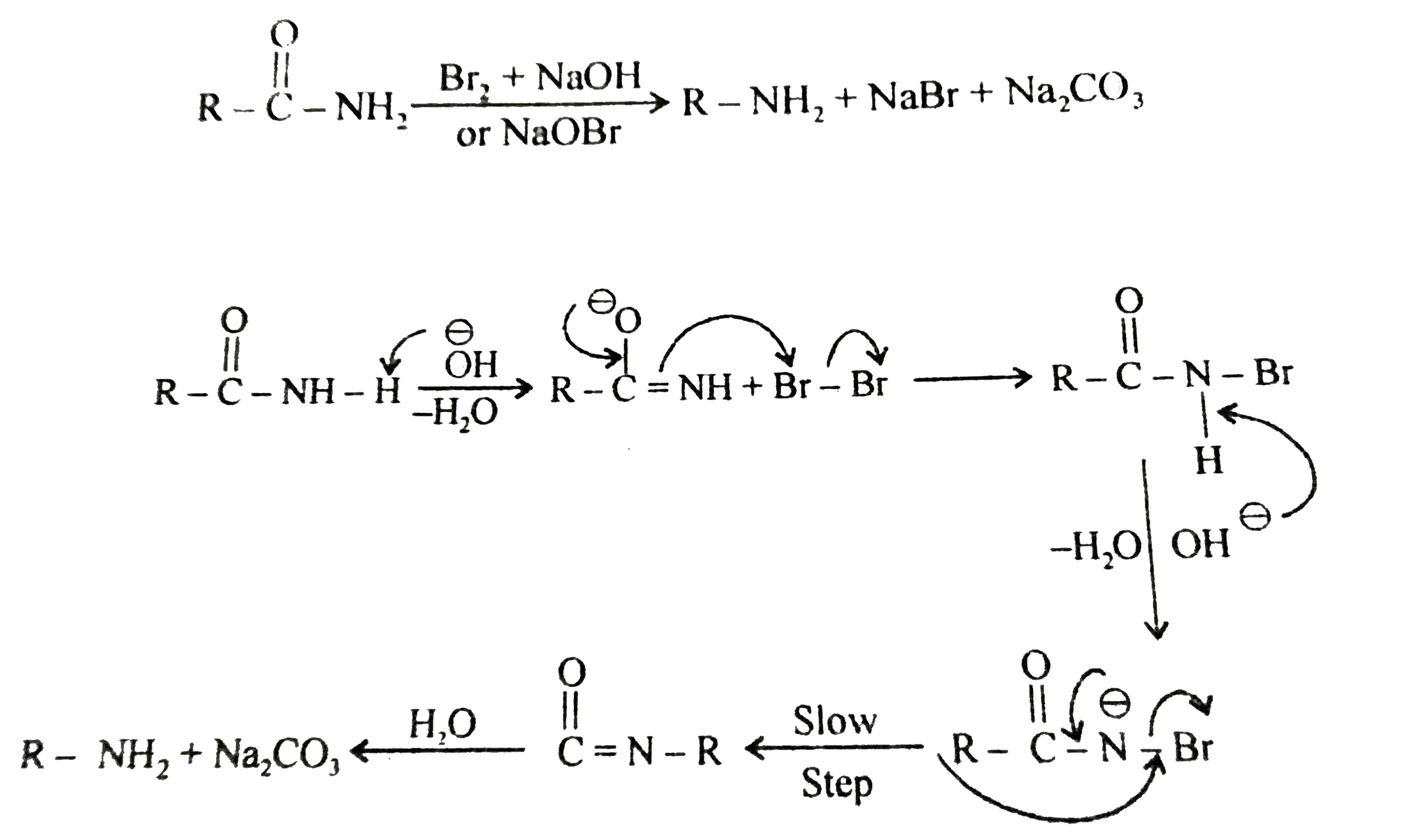
Number of moles of NaOH consumed in a above reaction :
View SolutionThe conversion of an amide by reaction NaOH and Br2 to primary amine that has one carbon than the strating amide is known as Hofmann-Bromoamide reaction.
R−O∣∣C−NH2Br2+NaOH−−−−−−−→orNaOBrR−NH2+NaBr+Na2CO3
Mechanism:
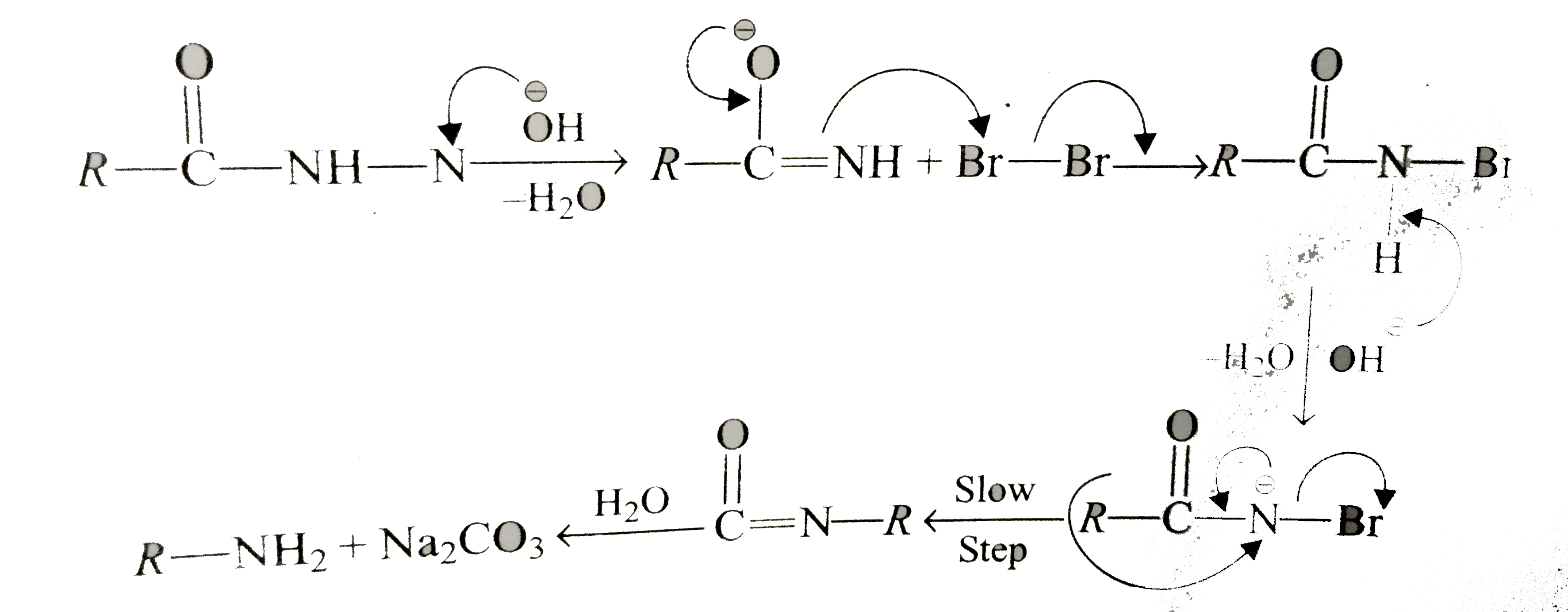
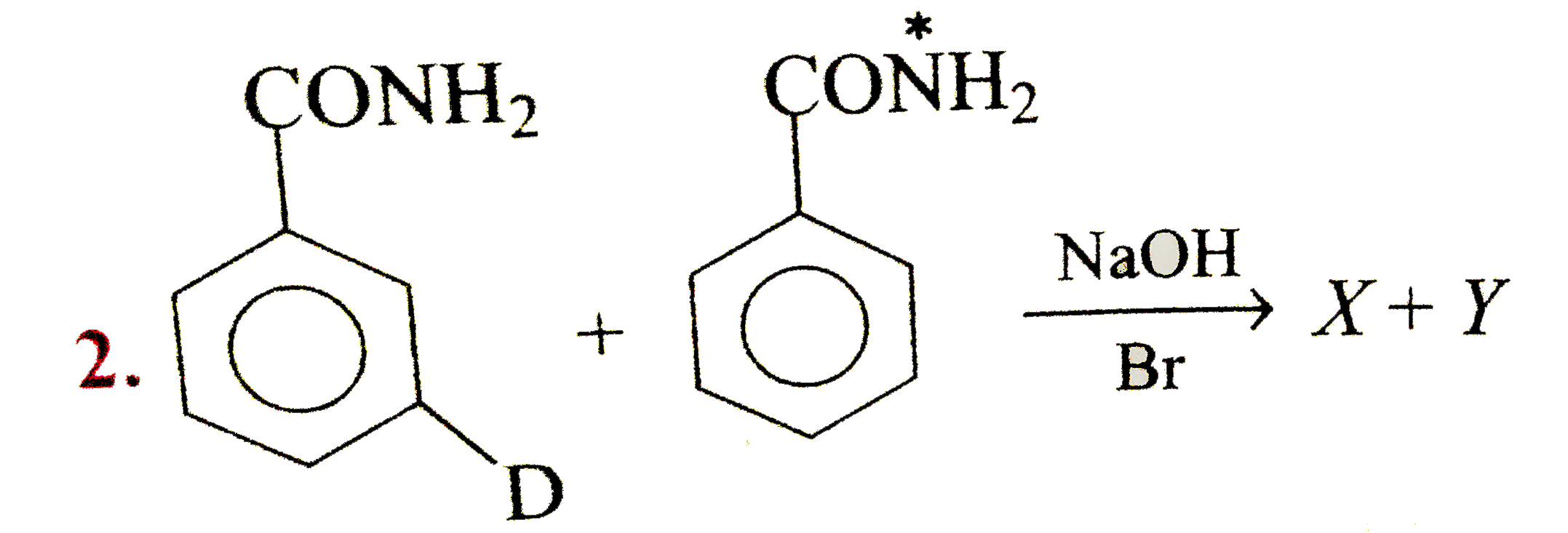
Find X and Y:
View SolutionR−O∣∣C−NH2+xNaOH+Br2→R−NH2+2NaBr+Na2CO3+H2O
Number of moles of NaOH used in above Hoffmann bromamide reaction is :
View Solution

